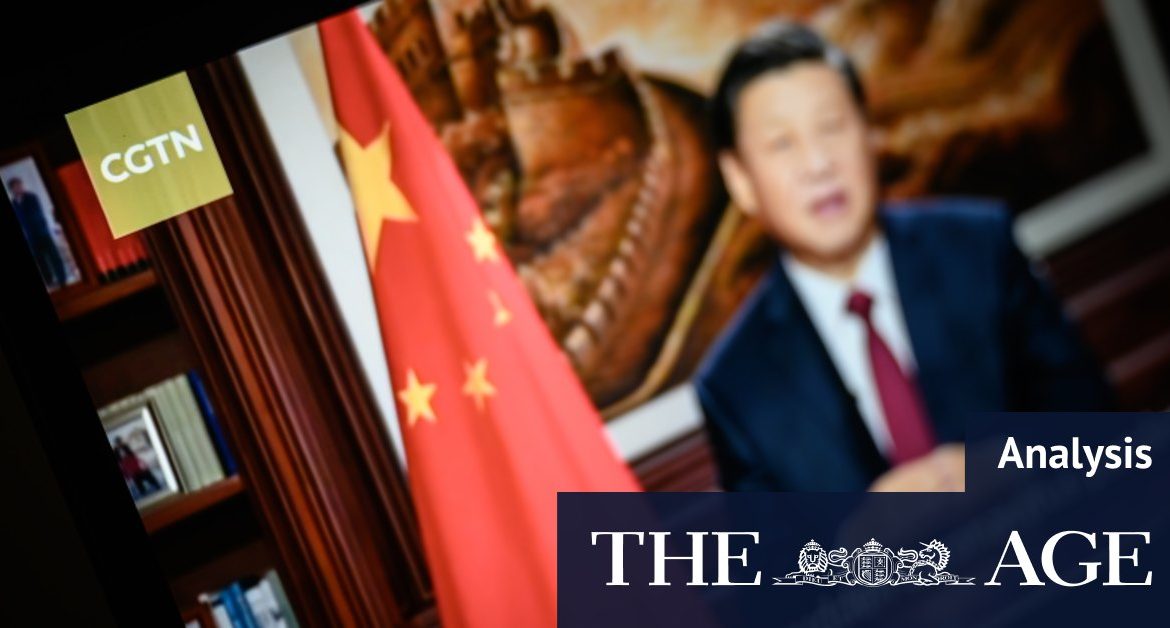“As they enjoy better living standards and become more confident, they now have the time and capability to express their disappointment over inaccurate information about China and openly discuss it.”
China’s tactics are two-fold. It is simultaneously raising doubts about the limited independent coverage of its government, while expelling, restricting or undermining the few journalists left to give a picture of its intentions.
Loading
The Foreign Correspondents Club of China said 2020 saw the largest expulsion of foreign journalists since the aftermath of the Tiananmen Square massacre more than three decades ago. At least 18 journalists, including Australian reporters Bill Birtles from the ABC and Mike Smith, from The Australian Financial Review, were forced to leave, hurried out as their visas were cancelled or over national security concerns.
“For the third consecutive year, not a single correspondent said working conditions improved,” the FCCC’s report on media freedom found.
Alice Su, The Los Angeles Times correspondent, reported having to “take three COVID tests over five days” as she attempted to report from Xinjiang, where Chinese state media has routinely claimed the Muslim-minority Uighurs are prospering, not being detained.
“They obstructed us and said we had to take a test, even though we’d just gotten tested 30 minutes earlier at the train station,” she said.
Others have been subject to trial by visa. The Globe and Mail’s Nathan VanderKlippe received seven consecutive one-month visas, followed by a three-month visa.
In Xinjiang, he too was followed from airports on arrival. “Shoved and grabbed by people who refused to identify themselves” and “placed under such close surveillance that interviews were impossible”.
Asked about the findings of the FCCC report, China’s Ministry of Foreign Affairs spokesman Wang Wenbin said the Chinese government “had never acknowledged the organisation”.
“We welcome media from different countries working in China,” he said. “And will continue to provide them with convenience and assistance.”
Loading
Steven Lee Myers, the expelled Beijing bureau chief for The New York Times, told the FCCC that despite what China says about wanting to be open to the world and to show everybody what a vibrant society it is, “they clearly restrict reporting of anything that doesn’t adhere to their vision”.
“It’s suggestive of a climate that’s not going to get any better,” he said.
The breakdown in two-way communication via the media is rapidly narrowing the space for dialogue at a time when political tensions between China and the West are at their highest point in decades. Chinese international state TV network CGTN is now banned in Britain after it aired forced confessions of political prisoners. Its broadcasts have also been restricted on SBS in Australia. In retaliation, the BBC was banned from the limited number of hotels it was allowed to broadcast into China after it aired a report on allegations of rape, sterilisation and torture in Xinjiang.
Those disputes came to a head on Wednesday when Britain’s ambassador to China, Caroline Wilson, was summoned by Chinese authorities for her “ideological prejudice” after she wrote an opinion piece that defended the work of reporters. The piece was blocked from being shared by China’s censors.
“Foreign media criticising the Chinese authorities does not mean that they do not like China,” she wrote in mandarin.
Wilson quoted the motto of the French newspaper Le Figaro: “If criticism is not free, praise is meaningless”.
Business Briefing
Start the day with major stories, exclusive coverage and expert opinion from our leading business journalists delivered to your inbox. Sign up here.
Eryk Bagshaw is the North Asia correspondent for The Sydney Morning Herald and The Age. Due to travel restrictions, he is currently based in Canberra.
Most Viewed in World
Loading







